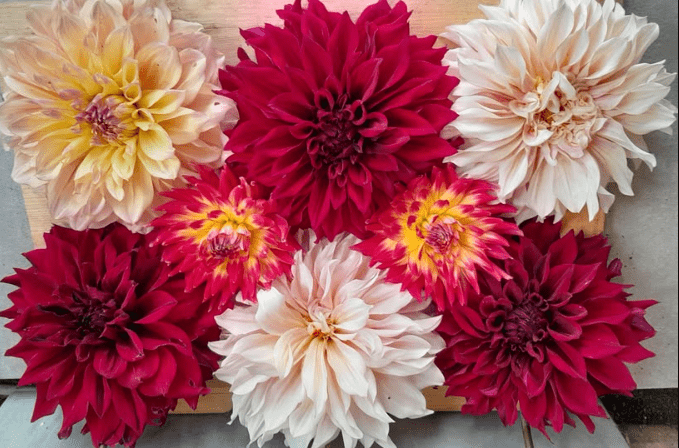As spring and summer grace the UK with warmer days and blossoming gardens, they also mark the start of hay fever season — an annual nightmare for millions of allergy sufferers. While many embrace this time of year by sprucing up their gardens, it’s crucial to understand which plants could exacerbate symptoms.
For those searching for ways to reduce allergic reactions during the warmer months, identifying hay fever garden plants to avoid is key.
Gardening expert Fiona Jenkins from MyJobQuote.co.uk has shared valuable insights into five popular plants that may be doing more harm than good and suggests alternatives to enjoy a pollen-safe garden.
Dahlias
Native to Mexico and Central America, dahlias are beloved for their striking array of colours and forms. From pastel tones to vibrant hues, they are a staple in many UK gardens, whether grown in pots or planted in borders.
These eye-catching blooms, however, belong to the aster family and carry a significant amount of pollen — a common trigger for hay fever symptoms.
If you suffer from hay fever but can’t resist the appeal of a dahlia, look around for dahlia hybrids classified as ‘formal doubles’ as these fluffy flowers have lots of petals and stamens that have evolved to be almost pollen-less!
Sunflowers
Recognisable and widely adored, sunflowers are fast-growing annuals that bring cheer to gardens and allotments. Despite their lack of scent, they can still be a hazard for allergy sufferers.
Due to their lack of fragrance, sunflowers are often overlooked as a cause of allergies. But those with large heads will produce a great amount of pollen, and the larger the sunflower, the more of a problem it can be for hay fever sufferers.
Certain varieties do carry heavier pollen that is less likely to become airborne, offering a slightly safer option for sensitive individuals.
Chrysanthemums
Chrysanthemums, or “mums”, are a familiar sight in gardens during late summer and autumn, known for their vivid colours and wide-ranging forms. While visually appealing, these too are part of the Aster family and can release airborne pollen in abundance. Hay fever sufferers may find themselves sensitive to certain parts of the plant, including its pollen, leaves, flowers, and even the stem.
Safer options include roses and peonies, which rely on insect pollination or produce heavier pollen that is less likely to become airborne.
Ryegrass
A staple in many British lawns, ryegrass is a resilient, fast-growing species that thrives in cooler climates. While its hardiness makes it popular, it’s also a major contributor to pollen levels in the UK. Grass pollen is the most irritating type of pollen for hay fever sufferers and affects an estimated 90% of people with the allergy.
If your lawn is causing problems, consider alternatives such as artificial turf, paving, or decking to reduce pollen exposure.
Ragweed
Though not typically cultivated intentionally, ragweed often finds its way into UK gardens and poses a serious issue for hay fever sufferers.
This aggressive weed produces large volumes of lightweight pollen that travels easily through the air. Just a single plant can produce up to 1 billion pollen grains. The pollen is very lightweight and, therefore, easily moved around in the breeze – so if you are a hay fever sufferer, quick removal from your garden is essential!
With climate change enabling the spread of ragweed across Europe, vigilance is key.
Alternatives for Allergy-Friendly Gardening
If you’re determined to keep your garden both beautiful and hay fever-friendly, consider planting:
- Roses: Heavy pollen that rarely becomes airborne
- Peonies: Insect-pollinated, not wind-driven
- Lavender: Low allergen levels with high aesthetic value
- Salvias: Long-flowering and attract pollinators without aggravating allergies
Creating a garden that offers joy without triggering allergies is entirely achievable. By knowing the hay fever garden plants to avoid and selecting alternatives wisely, you can still enjoy the outdoors — without the sneezing.






